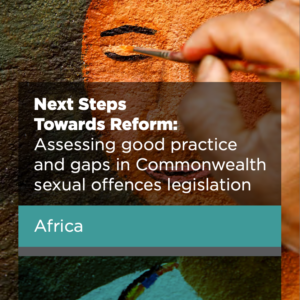The Seychelles sexual offences law is in the Penal Code (PC) adopted in 1955 and amended significantly in 1996, with only limited amendments since then, notably in 2016 to decriminalise consensual same-sex sexual activity. The Criminal Procedure Code 1955 and the Evidence Act (as amended) apply to criminal matters, including sexual offences, but do not contain provisions relevant to this report. The Seychelles applies common law rules of evidence.
In addition to the decriminalisation of consensual same-sex sexual activity in 2016, Seychelles’ sexual offences laws meet several good practice standards. For example, its sexual assault laws are gender-neutral and cover a wide range of conduct not limited to penile penetration of a vagina, they do not criminalise consensual sexual activity with a person with a disability and do not allow the defence of consent to child sexual offences.
However, in other respects, the legislation does not meet the good practice standards applied below. For example, the legislation does not expressly state that marital rape and sexual assault are crimes, or that there is no defence of marriage to sexual assault. ‘Consent’ is not defined expressly as free and voluntary agreement to sexual activity. The PC criminalises only a small number of specific child sexual offences and they are not all gender-neutral (e.g. abduction with intent offences are limited to girls). There are no close-in-age defences to protect young people from being prosecuted for consensual sexual activity with their peers. In fact, the PC provides that if children below 15 years have sex, only the boy is charged.
Seychelles is a state party to relevant international and regional human rights treaties, including the Convention on the Elimination of All Forms of Discrimination against Women, Convention on the Rights of the Child, Convention on the Rights of Persons with Disabilities and International Covenant on Civil and Political Rights. It has not joined the Convention against Torture and Other Cruel, Inhuman or Degrading Treatment or Punishment. Seychelles is also a party to the African Charter on Human and Peoples’ Rights and the Protocol to the African Charter on Human and Peoples’ Rights on the Rights of Women in Africa (Maputo Protocol).
Read more about how Seychelles decriminalised same-sex sexual activity.
The full assessment of Seychelles is also available here.



